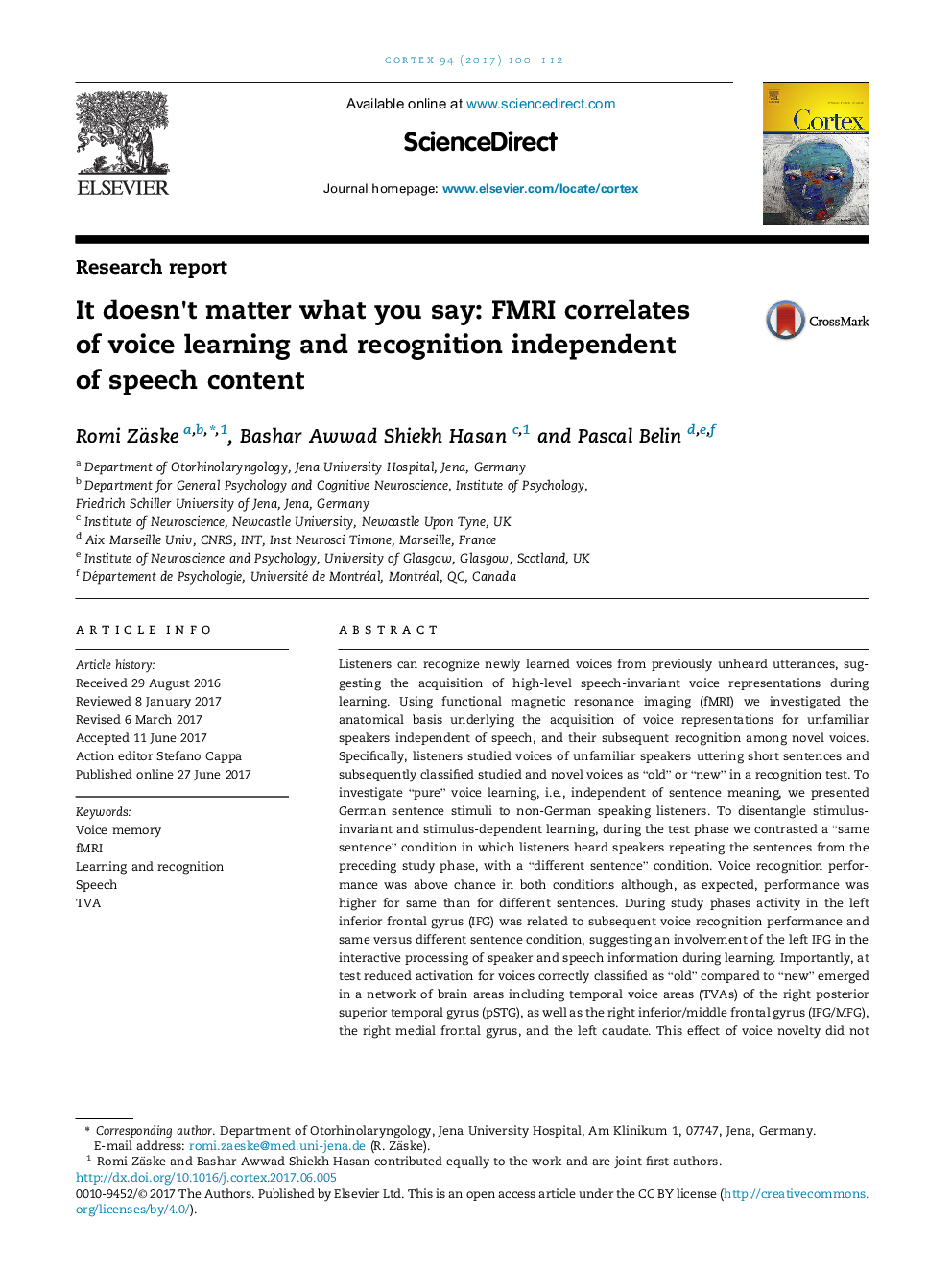| کد مقاله | کد نشریه | سال انتشار | مقاله انگلیسی | نسخه تمام متن |
|---|---|---|---|---|
| 5044571 | 1475438 | 2017 | 13 صفحه PDF | دانلود رایگان |

Listeners can recognize newly learned voices from previously unheard utterances, suggesting the acquisition of high-level speech-invariant voice representations during learning. Using functional magnetic resonance imaging (fMRI) we investigated the anatomical basis underlying the acquisition of voice representations for unfamiliar speakers independent of speech, and their subsequent recognition among novel voices. Specifically, listeners studied voices of unfamiliar speakers uttering short sentences and subsequently classified studied and novel voices as “old” or “new” in a recognition test. To investigate “pure” voice learning, i.e., independent of sentence meaning, we presented German sentence stimuli to non-German speaking listeners. To disentangle stimulus-invariant and stimulus-dependent learning, during the test phase we contrasted a “same sentence” condition in which listeners heard speakers repeating the sentences from the preceding study phase, with a “different sentence” condition. Voice recognition performance was above chance in both conditions although, as expected, performance was higher for same than for different sentences. During study phases activity in the left inferior frontal gyrus (IFG) was related to subsequent voice recognition performance and same versus different sentence condition, suggesting an involvement of the left IFG in the interactive processing of speaker and speech information during learning. Importantly, at test reduced activation for voices correctly classified as “old” compared to “new” emerged in a network of brain areas including temporal voice areas (TVAs) of the right posterior superior temporal gyrus (pSTG), as well as the right inferior/middle frontal gyrus (IFG/MFG), the right medial frontal gyrus, and the left caudate. This effect of voice novelty did not interact with sentence condition, suggesting a role of temporal voice-selective areas and extra-temporal areas in the explicit recognition of learned voice identity, independent of speech content.
Journal: Cortex - Volume 94, September 2017, Pages 100-112